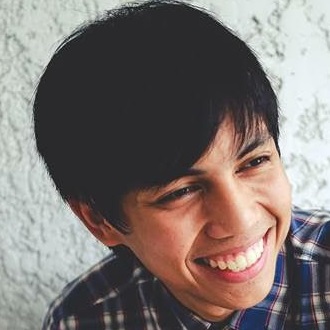SUMMARY
This is AI generated summarization, which may have errors. For context, always refer to the full article.
 I remember a conversation I had back in 2013 with a family friend of mine in Germany. We sat by the corner of a flea market somewhere in Munich and, during the down time, he proceeded to ask me about God. Being Filipino, he told me, he thought I could tell him why I believed in God because Filipinos, he added, seemed to be the most religious in the world.
I remember a conversation I had back in 2013 with a family friend of mine in Germany. We sat by the corner of a flea market somewhere in Munich and, during the down time, he proceeded to ask me about God. Being Filipino, he told me, he thought I could tell him why I believed in God because Filipinos, he added, seemed to be the most religious in the world.
It helped a lot that we’d just come from mass from one of the local churches there. After being taught by the Jesuits, I’ve been very much convinced that answering a loaded question like that requires an experiential dimension and not just a dogmatic, and scriptural one. I don’t think you can talk about God meaningfully without talking about experience or context.
My friend was a musician so we started from there. We talked about how different religion was between Germany and the Philippines based on music.
Filipino music as an experience in itself
The mass we attended wasn’t very different from what we have here, at least in terms of structure. Even if it was said in German, my family knew well enough when to sit, when to stand, and when to kneel after years of tradition. Some would say it would’ve been easier to just follow what the other people were doing around us but the church was close to empty when we’d gone that day.
The biggest difference though, apart from the round piece of bread used for Holy Communion being much thicker than ours, was the music that accompanied the entire mass. I’d been used to listening to choirs singing everything from the entrance hymn to the Our Father, to the closing hymn, and, sometimes, even the Responsorial Psalm. During that German mass, I noticed that only about two to three parts of it had music — and it was just to the sound of one person chanting accompanied by minimal organ playing.
Talking to my friend about it, I told him that it wouldn’t be strange back in the Philippines for mass to include different kinds of choirs. I explained that they could range from groups made up by small children, or teenagers, or even full-grown adults, who would sing to the accompaniment of a pianist or a guitarist. Some choirs would even sing alongside the tune of a violin, or a horn section, or even a full band set-up. Others would even do so harmoniously in acapella.
What seemed to surprise him the most was the diversity of music we had here. As he made references to the monotonous chants we chanced on, I was describing how we had songs we used for mass that go from engaging the attendees to be deep in reflection to the kind that people would want to clap their hands to – like Fr. Manoling’s I Will Sing Forever.
I remember him smiling in disbelief as if I was talking about music they never played in a church.
Beyond just religion

We’d segued from talking about music in the church to music in general. Being a musician himself, my friend started talking about his love for playing the guitar — how he started, how he learned chords, and how he loved Ed Sheeran before he got famous.
I can’t remember exactly how we shifted back to talking about God but I do remember how we were both in agreement that the belief of some Greater Being up there was really a lot just like music in general. I think anyone who listens to a cover of an Ed Sheeran song and just hearing four particular chords, as he described the song to me, sorely misses out on the point of listening to the song (or any song for that matter) in the first place.
Much like religious practices like hearing mass and visiting churches on Holy Week, I think people can miss out on the point when they just focus on just those practices and not realizing why they do them in the first place.
To date, I still find it interesting that a 5-minute conversation with a friend made me realize so much about God or whatever other people would like to call that Higher, unexplainable Power up there.
A few of those insights would include:
- How the mere experience of being a Filipino-Catholic could be enough to make others from other countries believe (or, at least, start to) in something greater than themselves
- How music itself is something we build through human capability but has a somewhat universal, or divine dimension when created
- How anyone who has the ability to create (or even just desire) music has an immediate connection with that Greater Power
- How there really is some unexplainable, genuine curiosity and love to try and understand what we cannot know fully.
But, I’d like to think, even more so because Holy Week is upon us, that those are questions best left to reflect on for now, instead of eagerly just trying to come up with quick answers.
Sometimes dwelling on questions themselves, allowing the mind to wander in wonder, can just be as good for the soul as finding those answers. And those being admirable qualities of any human person, I’d like to believe, I genuinely hope they’re things people never stop trying to do: asking questions, seeking answers, and having the grace to enjoy doing both. – Rappler.com
Serge Gabriel is a psychology graduate from the Ateneo de Manila University. He is currently taking up his Masters in UP Diliman, and is an aspiring philosophy professor and restaurant owner. He looks forward to the next big concert of Fr Manoling and Fr Arnel Aquino, SJ in May for the benefit of the San Jose Seminary, and spending Holy Week with his family.
Add a comment
How does this make you feel?
There are no comments yet. Add your comment to start the conversation.